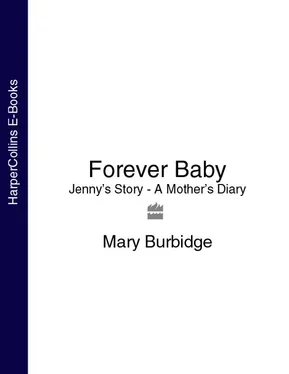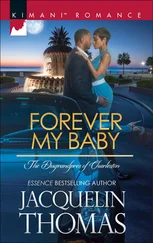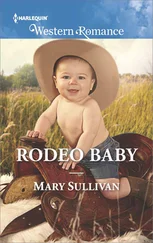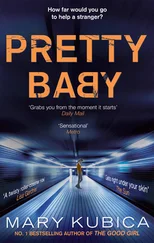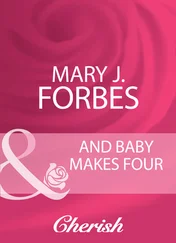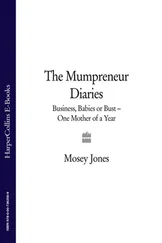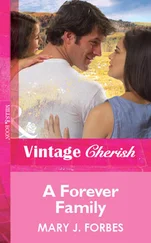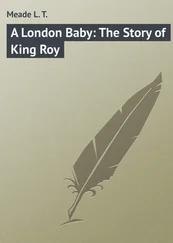In early 1995 our household was a busy one, a group of people leading busy lives.
I was doing three part-time jobs. I’d worked in a medical clinic as a GP for many years and was doing this for three sessions each week. After finishing at the Guardianship and Administration Board in 1994, I was appointed to the Social Security Appeals Tribunal and worked there once a fortnight. And for six months I had been working at Melbourne University for two days a week as part of the Developmental Disability Unit. I also went to meetings.
Andrew was working as a senior research fellow at an Australian Research Institute and was involved with sailing, musical and community activities, and going to meetings.
Joanna (Joey, Jo), our younger daughter, was 18 and had just started doing Journalism at RMIT. She was enjoying her friends and socializing more than she was enjoying her course. She was leading a full life.
Jim, my nephew, was boarding with us while he studied Town Planning at Melbourne University and explored life. He was not as happy as he might have been, but I failed to notice.
Annabel, a friend of Joey’s from country NSW, was boarding with us while she studied Dance at the Melbourne College of the Arts. Recurrent back trouble was threatening her dream of becoming a dancer.
And Jenny, our older daughter, was nearly twenty-one. She was going to Yarraville Special Developmental School each day and being cared for by Julie or other Council Home Help workers when no-one else was home. She liked company, attention, food, music and swimming in the heated pool we’d had built for her three years earlier.
A story I wrote about Jenny was published in the Melbourne ‘Age’ in 1994. I include it here to show Jenny’s special place in our lives and our hearts.
My daughter, my forever baby
I have a darling baby. A patient placid baby who nuzzles warmly into her sheepskin and gives me a sleepy smile when I come in. She sits up, bounces happily and reaches out for a cuddle. I lift her out of bed, and, with both hands held, she walks unsteadily to the bathroom to have her nappy changed.
She’s at a delightful stage, liking to help with dressing and undressing, wanting to hold the spoon but making an awful mess, moving along the furniture and pulling down whatever she can reach. She loves music – songs and rhymes sung to her, banging on the piano, clapping and finger games, and her never-ending, pull-the-string music boxes. She enjoys being taken for walks on sunny days, snatching heads off flowers as we pass, and she would splash and laugh forever in a warm bath or pool.
I’ve had my darling baby for nearly twenty years now, and unless something happens, I guess I’ll have her for another twenty years. She’s been at the lovely seven-to-nine-month stage for a long time, so I don’t expect much change.
She still has a sweet baby face, innocent, unmarred by loss or disappointment or anger, and she still has her mass of blonde curls. But her hormones are those of a young woman – a plump, buxom, almost voluptuous young woman – and acne spoils her pretty face. Her hair, though darker now, is still her finest feature. How often I’ve had cause to be thankful for those lovely curls! People are usually uncomfortable, stuck for something to say, on first meeting my big baby, but they can always say, “What beautiful hair!” And they do. It helps.
Others I know have a much harder lot with their “forever” babies. Endless years with a fretful, crying child, every mealtime a turmoil of spitting resistance, all activity a cause of spasms and distress. Or a child with full mobility but never learning to heed “no” or “stop”, on the go all day every day, getting bigger and stronger with every year, being influenced by powerful adolescent hormones. And without the redeeming beautiful curls.
We met at a special playgroup, a group of young mothers coming to terms with the realisation that our children were severely disabled. We talked through our guilt, our grief and disappointment, our anger, as we helped our children to play, and we’ve kept in touch. Caring for a severely handicapped child is a big task, as is caring for a baby, but when supports are available it is not all-consuming.
We have had other children and been active in their lives, we’ve had part-time jobs while the children are in day-care, our marriages have survived and we’ve had family holidays.
And we’ve become involved in “the field”, working to ensure that the best possible services and supports are available for our children, and for other disabled people and their carers. School councils, accommodation committees, fund-raising and fetes, lobbying politicians, demonstrations and protests, and self-education – we’ve done it all, learning as we go.
As our children reach nominal adulthood, there are further decisions to be made, battles to be won. We need to be sure that there are suitable day activities available for them when the school system is no longer an option, and that appropriate long-term accommodation will be provided when the time is right for them to leave our care.
For the most part, I’ve found people sensitive and helpful. Services and supports have been available when I have needed them, and the years have rolled by pretty smoothly.
But there have been jolts and hurts along the way. There was the ideologically-pure occupational therapist who removed my daughter’s toys and music-box from her wheel-chair because they were “age-inappropriate”. (I responded by tying a book, a chess set and a rock music tape to her tray, and she banged and chewed them into oblivion.) Or the brutally honest doctor at the children’s who said when I rushed her to casualty with croup, “I can admit her if you like, but she’d be better off at home. Children like that don’t get the best treatment here.” And the bastard who publicly queried my use of a disabled parking sticker.
Dilemmas arise in the decisions I need to make on my daughter’s behalf. As she reached puberty, I was offered, and accepted with misgivings, a hormone injection to stop her having periods. I think I secretly hoped it would stop her body from maturing, that I would be able to pretend forever that she was still a child. But it didn’t, and after a year or so I stopped the injections.
“Why should she wear a bra?” I wondered, until physical size provided an obvious answer. “What clothes should she wear?” I tend to dress her for her comfort and my convenience, but is this undermining her dignity as a young adult, denigrating her worth as a person? Should I dress her in the sort of things her sister wears; make an outlandish fashion statement on her behalf? What would she choose for herself if she could choose, and does it matter since she has no concept of fashion or dignity? (These are issues one is made uncomfortably aware of, when working in the broader disability field.)
In deciding to seek an operation to stop her menstruating, was I motivated by her best interests or mine? (The Guardianship and Administration Board accepted that it would be in her best interests. Such important decisions are not made by carers alone.)
In years past, children such as ours would very likely have been placed in institutions at an early age. Parents of babies with much lesser disabilities were often advised not to take them home. “Put her in a home and forget you ever had her,” they were told. And many did.
Recently I spent some time at a large institution, holding meetings with disabled people, their parents and their carers, and I observed a most amazing phenomenon. The residents were in their thirties and had lived in the institution for more than twenty years. The staff were in daily contact with them and met all their physical needs. The parents visited from time to time. Yet, repeatedly, I was struck by the strength and durability of the emotional bond they had with their parents. They couldn’t get close enough, couldn’t take their eyes off them, couldn’t bear for their parent’s attention to be anywhere but on them. An ungainly, non-verbal woman manoeuvred laboriously along the table and sat on her father’s knee, pressing her face to his. I felt so sad that these people had not been offered the encouragement and supports to keep their child at home for longer, to make the most of the love that was so obviously shared.
Читать дальше
